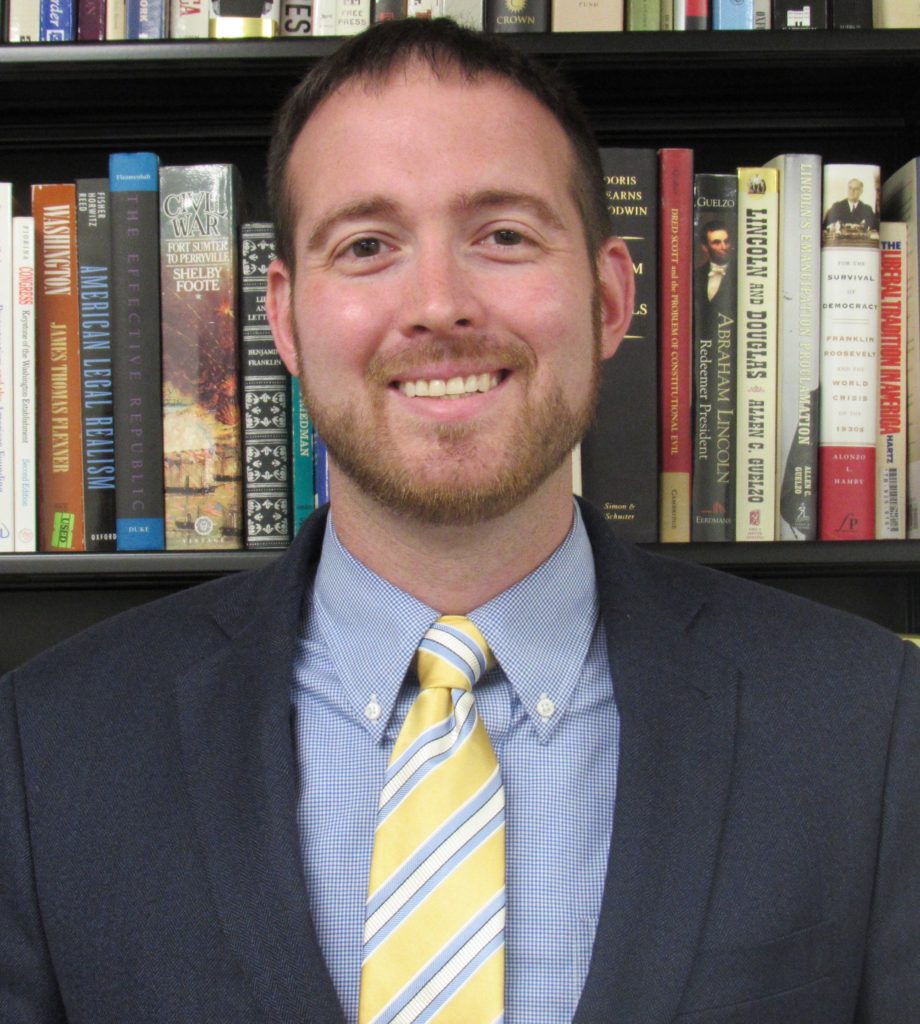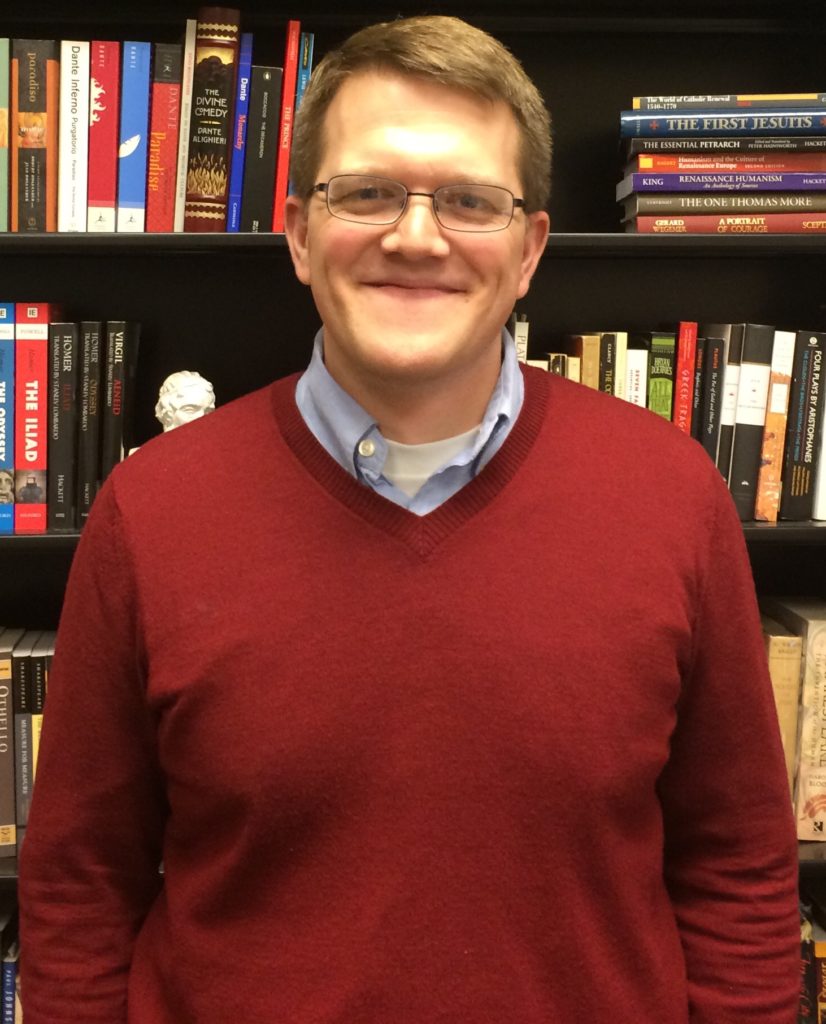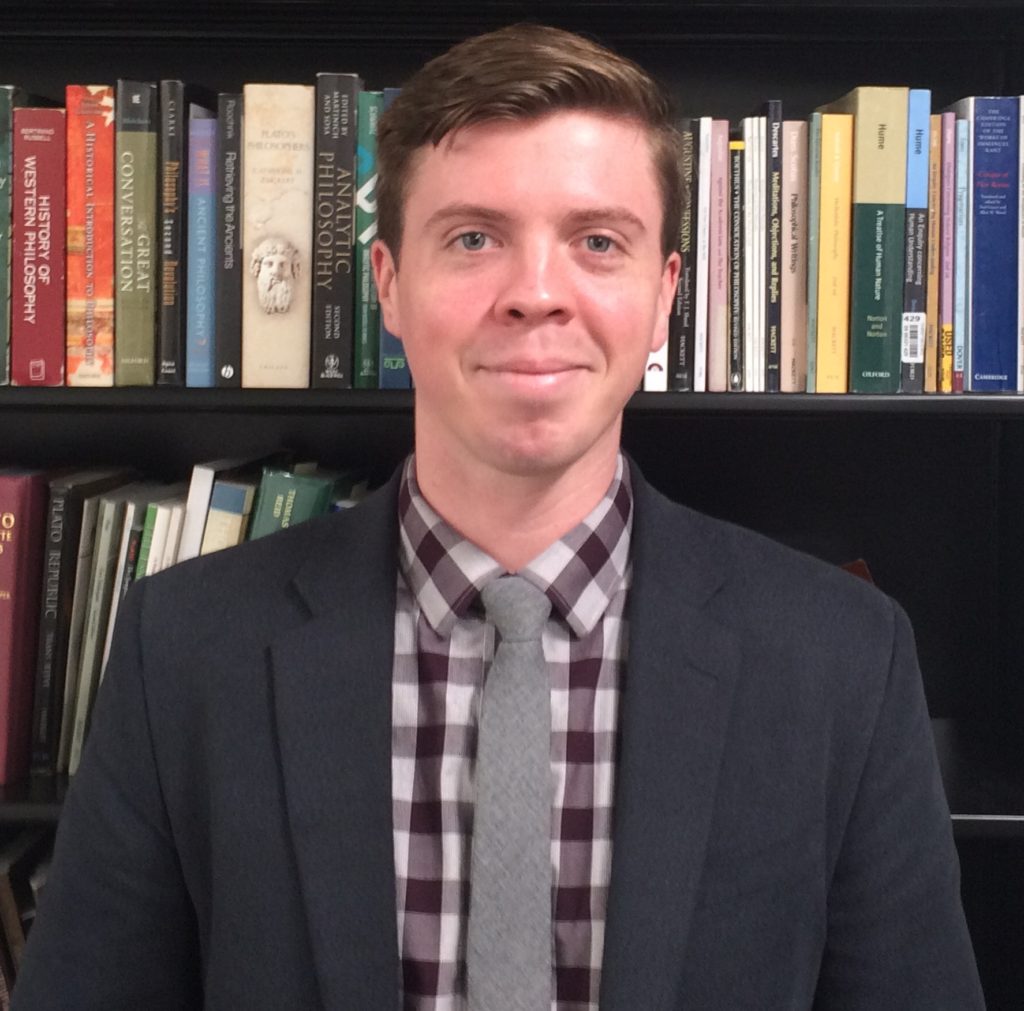The Millennial Generation covers a wide span of ages — anyone born from 1982-2004 — and it’s easy to forget that college students aren’t the only millennials. Some professors fall into the Millennial Generation, too.
This creates an interesting dynamic on campuses all over the country where one part of a generation is teaching the youngest members of the same generation, showing how diverse life experience can be among Millennials.
Millennial professors at Hillsdale College weigh in with their thoughts about teaching members of their own generation.
Dr. Adam Carrington, assistant professor of Politics
What do you think is the greatest strength millennials have in the classroom?
Millennials are very inquisitive. Millennial students want to be shown why something is the case. They have had a lot more diversity in media and have had to sort things through for themselves. As a result, this causes them to challenge things respectfully in the classroom.
What do you think is the greatest weakness millennials have in the classroom?
Writing. There is a lot of natural talent but much less refinement of the talent, and it comes to us more raw. There seems to be less grammar. I wish I’d been made to write more myself before college.
What would you like to see more of from your millennial students?
Millennials could do better with attachment to institutions. Millennials are distrustful of institutions, but institutions are still important. Millennials still tend to be religious but not connected to religious institutions. They want community but tend to not be attached to concrete communities where they live. For example, they tend to be involved in a social media chat room and not a local bowling league.
I would tell my students here not to overextend themselves. They think they need to be involved in everything right now. They struggle to do all their things well and to stay healthy. Millennials want to have meaning to their lives.
In what ways do you think millennial students at Hillsdale conform to the stereotypes of millennials? In what ways do students at Hillsdale defy them?
Hillsdale students conform to millennial stereotypes in how politically polarized they tend to be. This obviously differs from the general millennial populace a bit in how they lean a certain way. Hillsdale students are more economically libertarian while being socially less libertarian than the average millennial. Students here are much more religiously devoted and connected with religious institutions. Hillsdale millennial students are similar in the need for figuring out who they are.
What advice do you have for millennial students?
Don’t take for granted the community and education you have here at Hillsdale.
Dr. Benedict Whalen, assistant professor of English
What do you think is the greatest strength millennials have in the classroom?
Well, first two caveats: to speak of a generation is to speak in mostly unfair generalizations, and I am suspicious of the meaningfulness of our generational divisions. That said, our greatest strength in the classroom probably has to do with our unrealistic idealism that allows millennials to have big dreams and hopes even as our culture declines and the baby boomers spend our grandchildren’s wealth.
What would you like to see more of from your millennial students?
More serenading outside of windows, poetry shouted from the rooftops, impromptu renditions of Shakespearean death scenes, and, of course, correct semi-colon usage.
In what ways do you think millennial students at Hillsdale conform to the stereotypes of millennials? In what ways do students at Hillsdale defy them?
Hillsdale students are definitely much more earnest than many of our peer-millennials. I love that about them. But Hillsdale millennials have some of the attendant weaknesses of our generation as well: vanity, self-absorption, cell-phone addiction, and constant busyness.
What advice do you have for millennial students?
Gather ye rosebuds while ye may. And blame not my lute.
Is there anything else related to millennials about which you’d like to comment?
In a political culture that obsesses with identity and identity groups, it is probably best for millennials to not think of themselves as such, or even to worry about identity at all. Instead of identity, focus on actions.
Dr. Blake McAllister, assistant professor of Philosophy
What do you think is the greatest strength millennials have in the classroom?
I’ve noticed a fervent desire among us millennials to make a concrete difference in the world around us. Such an impulse can be problematic if it prevents us from patiently seeking the ‘less practical’ truths which are the aim of a liberal education, but it can also inspire us to implement those higher truths into our lives and societies. Living outside of the cave is great, but we need people who are willing to go back in and play with shadows.
What do you think is the greatest weakness millennials have in the classroom?
America’s educational and cultural institutions have inculcated many millennials with ideas that breed sloth and discourage the intellectual pursuit of the good. I’m thinking here of things like the bogus fact/opinion distinction which I learned in elementary school. See Justin McBrayer’s piece in the New York Times, ‘Why Our Children Don’t Think There Are Moral Facts.’ My teachers described facts as true and supported by evidence, whereas opinions are merely believed and cannot be established by scientific inquiry. The not-so-subtle suggestion is that something is objectively true and rationally discoverable if and only if it falls within the domain of the hard and soft sciences. Judgments of value were labeled ‘opinions,’ the obvious implication being that there are no objective truths about what is good, or else that such truths, if there be any, cannot be discovered. The fact/opinion distinction may be the symptom of a larger cultural problem rather than its cause. Regardless, the message sunk in. The result is a generation that largely despairs of our ability to productively inquire into the good.
In what ways do you think millennial students at Hillsdale conform to the stereotypes of millennials? In what ways do students at Hillsdale defy them?
Hillsdale millennials differ from millennials at large as much as Hillsdale College differs from the average public university. So, a lot. For instance, I’ve been delighted to find Hillsdale students are, in general, decidedly more resistant to the cultural forces spreading moral relativism and idleness, even when compared to other Christian institutions of higher education.
What advice do you have for millennial students?
Truth must be your first love.
Is there anything else related to millennials about which you’d like to comment?
I’m always a little hesitant about the relentless millennial bashing that occurs in our culture, not because millennials are a lot better than everyone thinks but because I’m not sure that, comparatively, we’re a lot worse than everyone else — especially not when considering the scope of history. Were the hearts of previous generations really more righteous than ours, or did their depravity simply manifest itself in different, sometimes less explicit ways? That being said, there are some trends in millennial culture that are especially harmful, such as the erosion of objective moral truths, and that must be combated with special vigor. My only stance here is that these matters are nuanced, and that taking pot shots at millennials probably doesn’t help. Millennial professors, on the other hand, are fair game.




